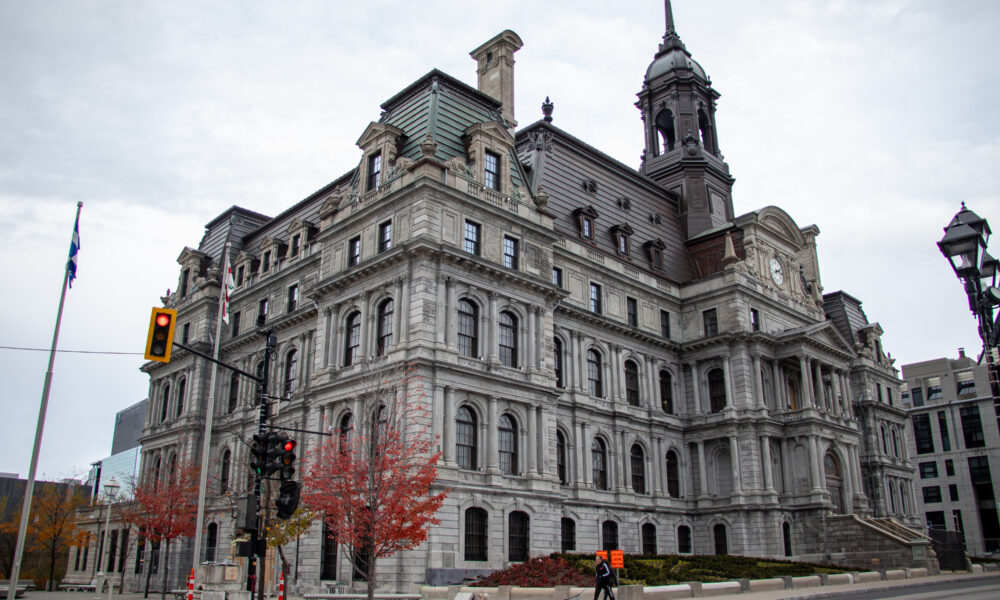All too many Indigenous residents of Tiohtià:ke—the island known to many as Montreal—face truly dire circumstances. Only recently, however, through a conversation that I shared with a lovely Inuk man named Paulu, have I come to recognize both the profound gravity and pressing urgency of the situation. During our conversation, Paulu described in great detail the many injustices faced by members of his community daily, focusing especially on the city’s pitiful lack of public infrastructure to shelter its rapidly growing population of unhoused individuals. Above all, Paulu expressed his broiling frustration toward the utter impotence of Montreal’s municipal government in implementing concrete solutions to the injustices that he and his community have endured for years.
The city of Montreal has recently hired Randy Legault-Rankin as its newest Commissioner of Indigenous Affairs. On paper, it appears that Legault-Rankin is the ideal candidate for the job. With years of experience working in Indigenous relations in both government and nonprofit environments as well as, more importantly, being a member of the Abitibiwinni Nation himself, Legault-Rankin seems to possess both the knowledge and connections to genuinely better the lives of Montreal’s almost 20,000 Indigenous residents. However, when asked by interviewers to divulge the precise ways in which he plans to curb specific issues facing Indigenous communities in Montreal—the most poignant being the city’s growing homelessness crisis—Legault-Rankin routinely responds with the same empty platitudes about ‘community partnerships’ and ‘centring Indigenous voices’ that have defined Canada’s pathetic attempts at reconciliation for years.
Montreal’s neglect of Indigenous issues has entrenched a devastating crisis: Indigenous people in the city are 27 times more likely to experience homelessness than non-Indigenous residents. For Inuit specifically, the disparity soars to 80 times more likely. Furthermore, the minimal attention given to this crisis by policymakers has created a reality in which the city’s network of emergency shelters is utterly insufficient in supporting its swelling population of unhoused individuals—a reality that disproportionately affects Indigenous communities who make up a staggering 12 per cent of the visibly unhoused population of Montreal despite constituting merely 0.6 per cent of the city’s total population. Still, Montreal provides fewer than 2,000 beds in shelters each night, failing to meet the needs of the city’s 5,000+ individuals who require these crucial sheltering services. This discrepancy is especially disgusting considering that there remain upwards of 800 derelict and abandoned buildings across the island that could be converted into shelters if only for the commitment of the municipal government towards developing such projects. However, for years the city has prioritized private development of these sites or has simply left them to languish in decrepitude—a deeply irresponsible injustice that especially angers Paulu, and rightfully so. If the city truly cares for Indigenous residents and their wellbeing, addressing this situation with compassionate yet decisive action should be the first thing on every municipal politician’s to-do list.
As members of a Montreal-based institution, the McGill community maintains a responsibility toward the Indigenous peoples of this land. Both within the classroom and in our daily lives, students must use their voices to pressure university administrations and local governments to pursue action-oriented reconciliation with Indigenous groups in our community.
Luckily, Legault-Rankin is in the perfect position to bring about this crucial change in the city’s approach toward reconciliation. However, over a month into his role and still having yet to propose a single precise policy change, Legault-Rankin risks slipping into the same trap of inaction to which his many political predecessors have fallen victim. In evading this trap, Legault-Rankin must expand his strategy beyond the vague platitudes that have defined his tenure so far and pivot towards concrete policy improvements to provide crucial support for the Indigenous communities of this city. For the sake of Paulu and every other Indigenous resident of Montreal, I hope that he will succeed.









